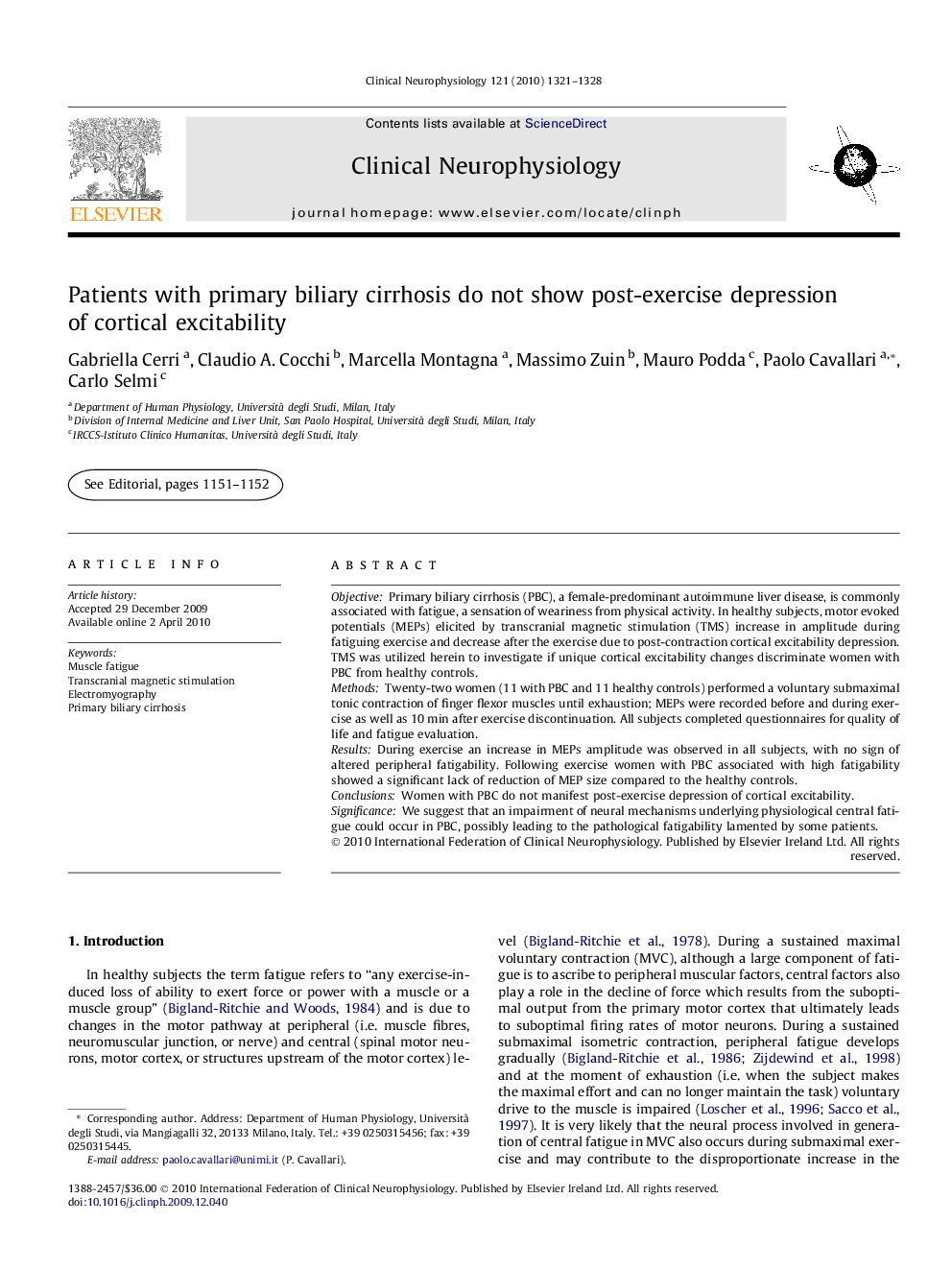| Article ID | Journal | Published Year | Pages | File Type |
|---|---|---|---|---|
| 3044855 | Clinical Neurophysiology | 2010 | 8 Pages |
ObjectivePrimary biliary cirrhosis (PBC), a female-predominant autoimmune liver disease, is commonly associated with fatigue, a sensation of weariness from physical activity. In healthy subjects, motor evoked potentials (MEPs) elicited by transcranial magnetic stimulation (TMS) increase in amplitude during fatiguing exercise and decrease after the exercise due to post-contraction cortical excitability depression. TMS was utilized herein to investigate if unique cortical excitability changes discriminate women with PBC from healthy controls.MethodsTwenty-two women (11 with PBC and 11 healthy controls) performed a voluntary submaximal tonic contraction of finger flexor muscles until exhaustion; MEPs were recorded before and during exercise as well as 10 min after exercise discontinuation. All subjects completed questionnaires for quality of life and fatigue evaluation.ResultsDuring exercise an increase in MEPs amplitude was observed in all subjects, with no sign of altered peripheral fatigability. Following exercise women with PBC associated with high fatigability showed a significant lack of reduction of MEP size compared to the healthy controls.ConclusionsWomen with PBC do not manifest post-exercise depression of cortical excitability.SignificanceWe suggest that an impairment of neural mechanisms underlying physiological central fatigue could occur in PBC, possibly leading to the pathological fatigability lamented by some patients.
